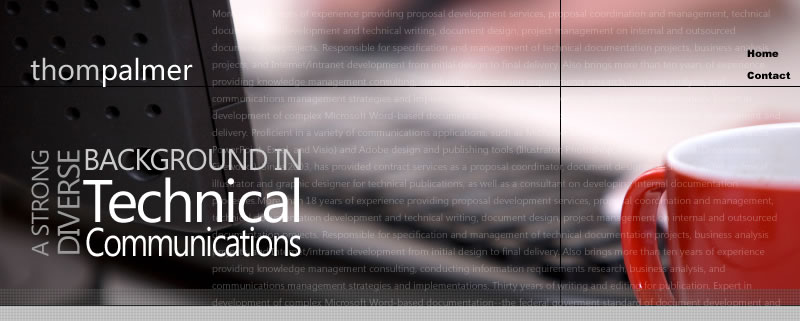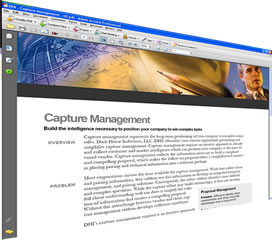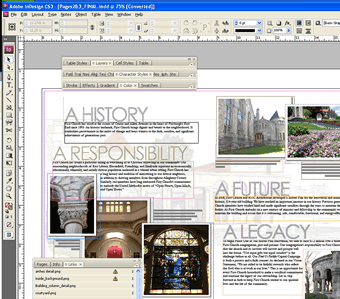

About Our Work
Technical communications encompasses a variety of disciplines and can refer to any number of different abilities. For your dollars, it makes more sense to engage a consultant/ contractor with experience that spans the technical communications spectrum. Technical writing is just one element, but a good technical writer embodies the basics of an overall effective technical communicator. There are a variety of basic concepts that may sound like so many buzzwords, but strength and experience in these concepts is what sets communications contractors apart in terms of value: organization, consistency, message. Slightly more abstract qualities, but ones resulting from experience, like empathy and judgment, aid a good technical communicator when it comes to understanding and responding to a client's specific business requirements. Having a good eye and a good ear helps a lot, too. Download a current résumé detailing the projects involving the capabilities described below>>

Proposal Development Support
Over the last several years, we have done a great deal of work in the government contracting space. We have supported a number of government contractors, both large and small, in the development of proposals for government contracts of various size and complexity. In this area, we perform a number of different roles, based on client need:
Proposal Development Support >
Document Design & Development >
Technical & Business Writing >
Copy, Line, & Content Editing >

Document Design & Development
We have helped many different companies establish a standardized look-and-feel to all kinds of business documentation, from internal guides and process documentation to customer-facing material such as end-user documentation, newsletters, white papers, capabilities documents, business plans, and responses to Requests for Proposals (RFPs) and Request for Information (RFIs).
Technical and Business Writing
Thom Palmer has been writing and editing for publication for almost thirty years. For the business sector, we’ve written and performed editing services for just about everything at one time or another: technical documentation; end-user documentation; step-by-step and procedural documentation; advertising and marketing content; Web site content; tutorials; presentation scripts; proposals; white papers; capability documents; reports; course material. We’ve even ghostwritten customer articles for business journal publications.
Copy Editing, Line Editing, and Content Editing
If you already have all the writers on staff, it’s always a good investment to engage a professional editor. We have logged tens of thousands of hours performing copyediting, line editing, and content editing services to our clients. What are the differences?
Copy Editing
Copy editing involves a careful manuscript review, correcting errors in grammar, punctuation, and spelling. A copy editor will also standardize the content of a document based on corporate and industry styles, and verify cross-references.
Line Editing
Line editing is a more intensive brand of editing performed when a document needs a bit more work to get it into shape. Line editing involves combing a document for more pervasive errors in spelling, grammar, punctuation, and syntax. A line editor will also address word choice and make light recommendations for improving a document’s overall readability.
Content Editing
Content editing is an even more intensive version of line editing, reviewing for overall accuracy and consistency of content and focus, and usually involving more extensive restructuring of sentences. Content editing is more or less the same as performing a re-write.


